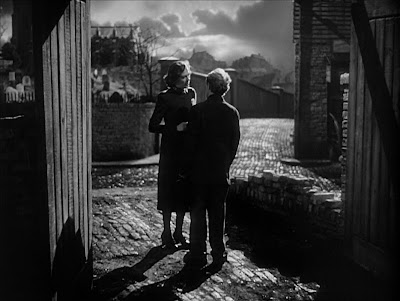Written by Bernard Shaw from his play.
Despite being credited as director, Pascal didn't know the first thing about it, so hired West End director Harold French for the actors, and David Lean, who knew where to put the camera and which lenses to use. Lean also ended up completing the editing after Charles Frend had a breakdown, but he ends up with the credits 'assistant to the director' and 'montage by'. Nevertheless having survived a particularly difficult production (during which, for example, Pascal ended up refusing to talk to Morley at all) it proved to Lean he could direct solo.
 |
| Deborah Kerr's debut aged 18. |
Refreshingly playful and cynical in attitude. For example, the first two people being helped by the Salvation Army reveal they're conning them for free hand-outs. Harrison is clearly only interested in Hiller for herself, not the Army. Morley doesn't want to be named as the benefactor or all the other charities will be on him. Ultimately I suppose, it being wartime, the thought of a munitions factory 'making war on war' would have been acceptable to the public.
On camera, Harry Stradling went home when war was declared, Osmond Borrodaile had problems with 'scratches on the negative', Frederick Young (who did not initially hit it off with Lean) was recalled to another film, and he finally recommended Ronald Neame: it was the beginning of a fruitful relationship with Lean and is very nicely shot:
 |
| Bearded Morley with Miles Malleson, who for years always looked the same age. |
Shot in the height of the blitz. Robert Newton and Donald Calthrop would retire for a few during the air raids!
Music by William Walton, art direction Vincent Korda.
Source for stories: David Lean, Kevin Brownlow


No comments:
Post a Comment